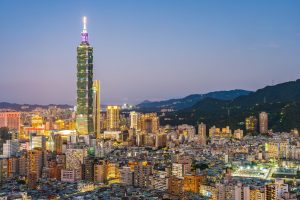When you think of Portuguese, Brazil probably comes to mind.
Which is fair.
But did you know that Portuguese is the 8th most spoken language in the world, with around 267 million total speakers worldwide, beyond just Brazil?
Spanning four continents, South America, Europe, Africa, and Asia, Portuguese is a bridge connecting diverse cultures, histories, and economies.
Here’s a breakdown of 9 Portuguese-speaking countries and what you need to know about each.
Because if you want to connect with people, you don’t just speak their language.
You speak their truth.
Ranked List of Portuguese-Speaking Countries
1. Brazil
Brazil has by far the most Portuguese speakers in the world. Roughly 203 million individuals speak the language here, and it’s used for almost everything. School, work, TV, music, social media — whatever it is, Portuguese is there first in line.
The only catch, however, is that the dialect here is a little different. It’s influenced by indigenous languages, African languages, and even Italian and German. The Portuguese here sounds warmer and has a lot more local expressions, which reflect the Brazilian culture.
2. Angola
Over here, Portuguese is nearly everywhere. After all, roughly 15 million Portuguese speakers reside here. Whether you’re listening to the radio, in schools, or scrolling through your WhatsApp messages, Portuguese is the main language. Yes, there are other local languages such as Umbundu and Kimbundu, but they’re not as popular as Portuguese.
Angolan Portuguese is a little different from the other parts of the world it’s spoken in. It’s fast, casual, and full of all the local slang. The younger generation, in particular, speaks it in a way that’s mixed with local flavor.
3. Portugal
Portugal is where it all began, the birthplace of the language, tucked into the western edge of Europe. So, it’s safe to assume that you’ll find what’s called “original” Portuguese here. In Portugal, you’ll find around 10.5 million native speakers. Here, Portuguese feels older, more clipped, and full of elegant restraint. It’s the language of fado singers, Nobel-winning poets, and ocean explorers.
While the accent may feel more formal than in Brazil, it’s rich with history. In daily life, Portuguese in Portugal is polite, efficient, and full of idioms and references tied to its long history.
4. Mozambique
Portuguese helps hold Mozambique together, a country with more than 40 languages. The native speakers come up to around 5.5 million; however, for most people, it’s a second language. But it’s the one used in schools, government, and national news.
Mozambican Portuguese sounds more laid-back and is influenced by local African languages. It’s practical, used for communication more than tradition, and it changes depending on where you are in the city or the countryside.
5. Cape Verde
In Cape Verde, everyone speaks Kriolu at home, but Portuguese rules in the classroom and on official documents. Here, there are around 588,000 native Portuguese speakers.
Portuguese here feels educated, practical, and refined. It’s the language of newspapers, national debates, and literature. The two languages live side by side. Portuguese here feels formal, while Kriolu is personal and expressive. Most people switch between the two without thinking about it.
6. Guinea-Bissau
In Guinea-Bissau, Portuguese lives side by side with Creole. While only a minority, around 300,000, speaks it as a native language, Portuguese is still the voice of formality, used in government, education, and diplomacy.
Here, the line between Portuguese and Creole often blurs. On the streets of Bissau, you’ll hear them blend, shift, and switch. For many, learning Portuguese is practical and provides a cultural connection.
7. São Tomé & Príncipe
São Tomé & Príncipe is a small island nation with a big cultural heart. Here, Portuguese is spoken by roughly 214,000 native speakers. It’s spoken slowly, softly, and with a melodic rhythm that matches the gentle pace of island life.
Though home to several local creoles, Portuguese remains the main language in schools, the press, and daily conversation.
8. East Timor
East Timor’s relationship with Portuguese is tied to struggle, resistance, and identity. After years of Indonesian rule, Portuguese was brought back as a symbol of independence in 2002. Today, it’s one of two official languages, though spoken fluently by only a minority, roughly 100,000 individuals.
Still, its influence is growing, especially in schools and the government. For many, Portuguese represents a bridge to global opportunity, a badge of pride, and a thread connecting them to Lusophone history.
9. Equatorial Guinea
Equatorial Guinea joined the Community of Portuguese Language Countries in 2014, officially adopting Portuguese to strengthen international ties. While very few people speak it natively, around 20,000, it’s slowly finding its way into education and diplomacy.
Here, Portuguese is not yet embedded in daily life since most people speak Spanish or French; however, it has the potential to become a third voice in the country.
Here’s a quick look at the number of Portuguese speakers by country:
| Country | Continent | Native Speakers (approx.) | Status of Portuguese |
| Brazil | South America | 203 million | Official language (primary) |
| Angola | Africa | 15 million | Official language |
| Portugal | Europe | 10.5 million | Official language |
| Mozambique | Africa | 5.5 million | Official language |
| Cape Verde | Africa | 588,000 | Official language |
| Guinea-Bissau | Africa | 300,000 | Official language |
| São Tomé & Príncipe | Africa | 214,000 | Official language |
| East Timor | Asia | 100,000 | Official language (with Tetum) |
| Equatorial Guinea | Africa | ~20,000 | Official language (since 2010) |
Ready to Speak to Over 260 Million Native Portuguese Speakers?
Portuguese isn’t just Brazil.
It’s Angola, Portugal, Mozambique, Cape Verde, and so many more. It’s spoken by over 260 million people across four continents, and each region has its own voice, flavor, and cultural nuances.
Whether you’re launching in São Paulo or Lisbon, expanding into Luanda or Maputo, a one-size-fits-all translation just won’t work. We’re dealing with a language that’s got deep regional variations and rich cultural nuance.
One misstep, you’ve caused confusion, and lost all trust, credibility, and conversions you had.
To truly connect, you need more than just words. You need local insight, dialectal accuracy, and a strategy built for each market.
The key to meaningful communication isn’t just saying the right words.
It’s making people feel understood. When you respect the way people speak, live, and think, you don’t just translate, you connect. And that’s how trust is built.
At EC Innovations, we offer Brazilian and European Portuguese translation services that just work. If you’re serious about growing in the Portuguese-speaking world, don’t settle for generic.
Speak like a local. Sound like you belong.
That’s how you break through. With localization.
Contact us today to learn how we can help you speak fluent Portuguese to your customers.





